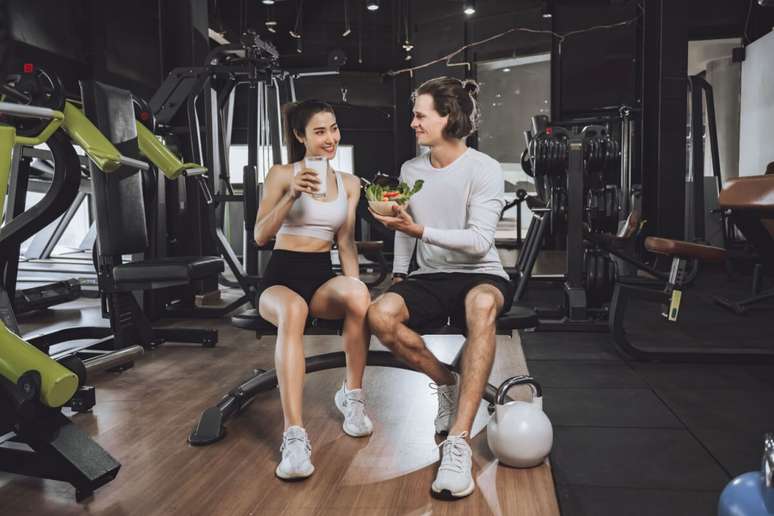Choosing the right food helps improve muscle mass gain
For those who exercise regularly, taking care of your diet, including pre- and post-workout, is essential to improve lean mass gains, restore muscle tissue, and promote better health.
“What we eat before and after training directly influences our physical performance, optimizing the results obtained from exercise, weight management and recovery of the body,” explains Jhonathan Andrade, specialist in Sports Nutrition and Exercise Physiology.
According to him, each sport has its own pre- and post-workout needs, depending on the specific needs of each athlete. “One balanced diet It is a consensus when thinking about health, but sports nutrition adds strategies to the routine of anyone who does physical activity regularly, professional athlete or not”, says the professional, professor of the Nutrition course at UniCuritiba, an institution that is part of Ânima Educação.
According to the nutritionist, physical effort leads to physiological changes and, if done intensely, causes nutritional depletion that must be compensated by choosing the right foods. In addition to defining training sessions, it is important to be aware of the ideal amounts of carbohydrates, proteins, fats, vitamins and minerals.
Carbohydrates before training
The body’s main source of energy, explains Jhonathan Andrade, is glucose from carbohydrate consumption. What is not used as an energy source by the body is stored in the muscles, in the form of glycogen. “Our body uses muscle glycogen to maintain good performance during physical activities. Therefore, carbohydrates are recommended before and after training or competitions,” he says.
The amount of carbohydrates to consume varies depending on the type of exercise, duration and intensity, as well as the time it takes to digest the food. The general recommendation is to eat between 1h30 and 2h30 before training to avoid gastrointestinal problems.
Good sources of carbohydrates include fruits, such as bananas and apples, whole grains, and tubers, such as sweet potatoes. It is important to remember that there are specific guidelines that must be followed depending on the individual athlete and the type of sport being practiced.

Protein after training
Post-workout requires more protein, because it acts on protein synthesis and muscle tissue repair. In this case, meals can include chicken, fish, eggs, dairy products (plain yogurt, cheese, etc.) and legumes (beans, lentils or chickpeas). Another tip is to eat the meal within 30 to 60 minutes after training, depending on the individual.
Importance of hydration
Like nutrition, other factors are also crucial to your health and the quality of your workout. Through sweating, your body loses water and electrolytes, which can cause fatigue, cramps, and decreased performance.
To avoid these problems, it is essential to maintain adequate hydration before, during and after the exercises. The amount of water and sports fluids must be adequate to the individual needs of each athlete and the type of sport practiced, requiring a personalized assessment.
Other health care
Associated with water intake and the correct choice of food, the nutritionist and professor at UniCuritiba recalls that other factors interfere with the results of training, such as taking care of the quality of sleep, which must be restorative in order for the physical performance be appropriate.
Regarding the use of supplements, Jhonathan Andrade recommends Request with a nutrition professional to assess the need. “Developing an adapted pre- and post-workout diet, as well as supplementing with vitamins, minerals and amino acids, are more effective with the help of a specialist who will be able to assess individual needs,” he warns.
In addition, the nutritionist recommends maintaining a diet rich in fruits, vegetables, grains and lean proteins; avoiding processed and sugary foods and planning meals in advance to make it easier to stick to a healthier diet.
By Marlise Groth
Source: Terra
Ben Stock is a lifestyle journalist and author at Gossipify. He writes about topics such as health, wellness, travel, food and home decor. He provides practical advice and inspiration to improve well-being, keeps readers up to date with latest lifestyle news and trends, known for his engaging writing style, in-depth analysis and unique perspectives.









